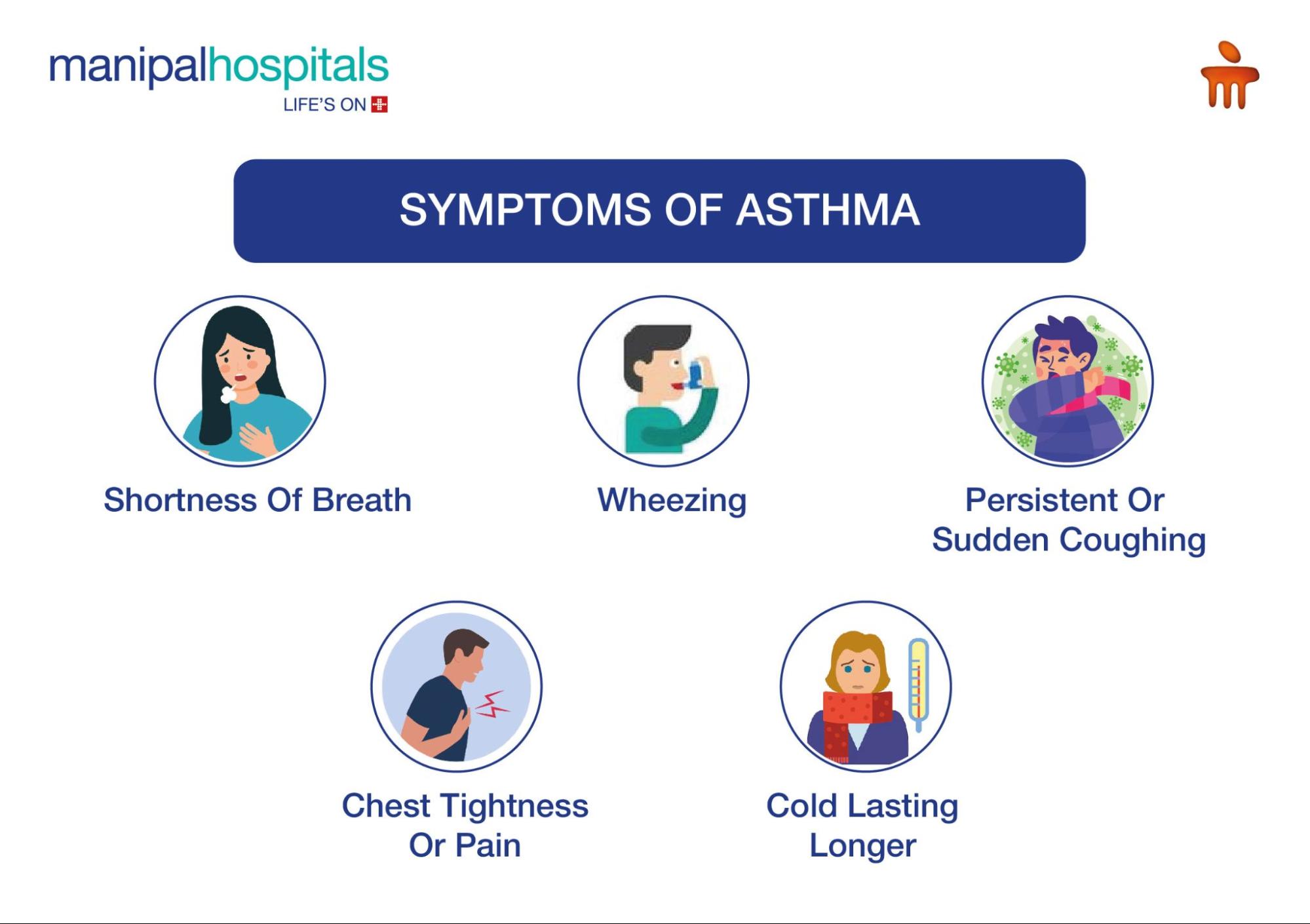Have you ever felt out of breath or suffered from a wheezing cough? You may be suffering from asthma.
Asthma is the most common chronic disease among children as well as adults, affecting 262 million people in 2019 and causing 455000 deaths. In India, about 35 million people are reported to suffer from asthma. Although asthma is a chronic illness, it may be effectively treated with the proper medication. However, in the majority of low- and middle-income nations, asthma is underdiagnosed and neglected.
That’s why, this World Asthma Day (observed on May 6), we are raising awareness about asthma through this blog post.
Synopsis
Importance of World Asthma Day
The Global Initiative of Asthma (GINA) celebrated the first World Asthma Day in 1988 during a meeting in Barcelona, Spain. Subsequently, every year, World Asthma Day is observed on the first Tuesday of May to raise awareness about asthma, improve the quality of care, and highlight its impact on millions of lives.
Understanding Asthma
Asthma is a chronic disorder that develops in the lungs, causing the airways to constrict, become irritated, and become sensitive. If this airway reacts to the trigger, it may lead to tightening of muscles around it, swelling of the lining, and increased mucous production, making it even more difficult to breathe. The disease is more frequent in youngsters and females.
Individuals with asthma face several challenges, such as managing symptoms, identifying triggers, and accessing appropriate medical care.
Symptoms of Asthma
Asthma symptoms are often misdiagnosed; therefore, being aware of them can help catch and manage them early.
-
Shortness of breath, even during minor physical exertion or rest
-
Persistent or sudden coughing, especially at night
-
Wheezing (whistling sound while breathing)
-
Chest tightness or pain
-
A cold lasting longer than ten days
The symptoms may range from mild to severe. In some cases, asthma symptoms may be life-threatening and require medical attention.
Causes for Asthma
A mix of genetic and environmental causes may cause asthma. Also, individuals with a family history of allergies or asthma are more likely to develop it.
Possible asthma triggers include:
-
Allergens (dust mites, mould, pollen, and pet dander)
-
Cold air, air pollution, and smoke
-
Respiratory infections, such as the common cold
-
Exercise-induced asthma
-
Strong emotions (stress or anxiety)
-
Workplace exposure to chemicals
-
Hormonal changes, particularly in women during pregnancy and menopause
-
In children, asthma can develop in those born prematurely, have low birth weight, and are obese
How is Asthma Diagnosed?
Your healthcare professional may do a comprehensive physical examination, obtain your medical history, and conduct lung function tests. A spirometry test is used to measure how much air the individual exhales and how quickly, helping doctors assess the severity and control symptoms.
Medical Treatment
Asthma treatment primarily involves the use of inhalers. Reliever inhalers provide quick relief during an asthma attack by relaxing airway muscles, while preventer inhalers are used regularly to reduce inflammation and prevent future attacks. For severe cases, Biological Therapies may be prescribed to target specific immune responses. Medications are typically delivered via nebulisers, spacers, or inhalers to ensure effective lung delivery. Consistent use of prescribed treatments is essential for maintaining lung function and preventing flare-ups, with regular check-ups ensuring the treatment plan is adjusted as needed.
Lifestyle Measures
-
Breathing exercise: It helps strengthen the lungs and encourages deeper breathing
-
Regular, moderate physical activity: Improves the overall capacity of the lungs
-
Maintain clean indoor air: Reduces exposure to airborne triggers
-
Staying hydrated: Helps thin mucus and keep airways moist
Asthma Prevention
Although we cannot prevent asthma from developing, it is possible to prevent flare-ups and recurrent attacks.
-
Avoid known triggers
-
Limit pollution exposure
-
Keep home well-ventilated
-
Use air purifiers
-
Follow frequent visits and undertake routine lung function tests
-
Quit smoking
-
Keep furred pets out of the house
-
Take a preventive inhaler daily
-
Clean air conditioners regularly
World Asthma Day 2025 Theme
World Asthma Day is an annual event organised by the Global Initiative of Asthma (GINA) to improve asthma awareness and care around the world. "Make Inhaled Treatments Accessible for ALL" is the subject chosen for 2025. It highlights the need to ensure patients with asthma have access to inhaled drugs, which are critical for managing both underlying disorders and treating episodes. By heightening awareness and advocating for better education, we can strive to enhance the quality of life for thousands of people with asthma.
Conclusion
On this Asthma Day, it’s crucial to raise awareness about asthma and ensure better access to treatment, especially inhalers, which are vital for managing the condition. With the 2025 theme "Make Inhaled Treatments Accessible for ALL," we must work towards improving diagnosis, care, and education. By understanding asthma and its triggers, we can help those affected live healthier, more active lives. Consult Manipal Hospitals, Dhakuria, today to ensure you have the support you need to breathe easily.
FAQ's
Asthma can develop at any age, although it is more common in children, but it can be seen in adults and the elderly.
Poorly treated asthma may worsen with age; their lung function will deteriorate compared to non-asthmatic individuals.
During an asthma attack, your airways tighten, making it harder to breathe. Individuals may experience their chest becoming tight or hear wheezing when they breathe or cough.
Most individuals can engage in any physical activity; it offers many benefits for people living with asthma. However, it is better to talk to your doctor regarding how to manage your asthma while playing sports.
You can schedule an appointment at Manipal Hospitals, Dhakuria, by contacting us or visiting our website.
Visit: https://www.manipalhospitals.com/dhakuria/specialities/pulmonology-respiratory-sleep-medicine/
Contact no: 033 6907 0001






















 6 Min Read
6 Min Read


















